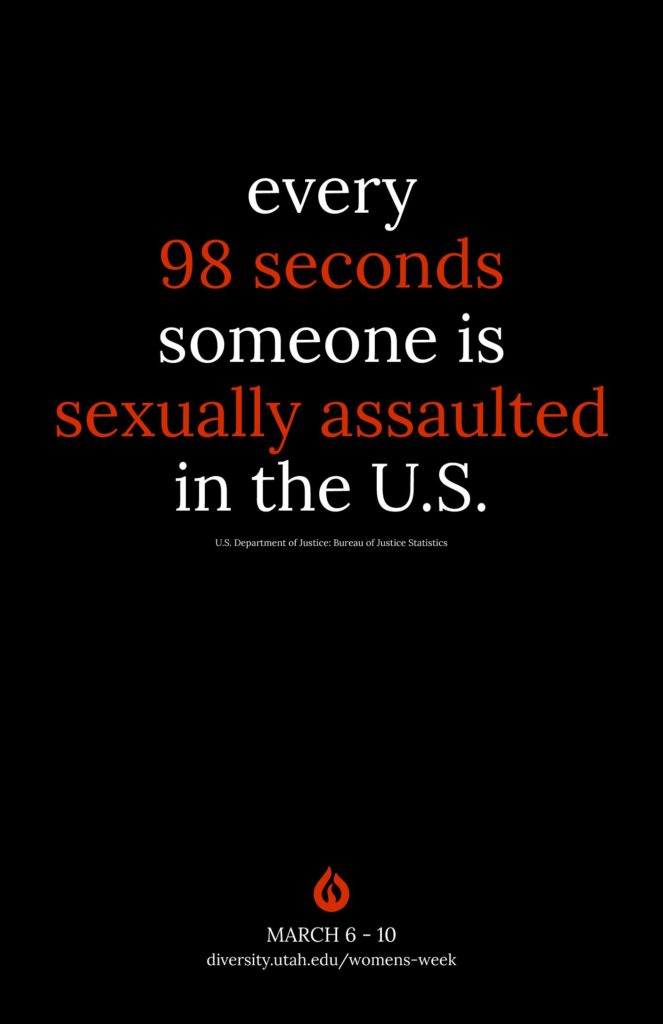March 6 through 10 is Women’s Week at the University of Utah planned by the Office for Equity and Diversity to “[celebrate] and [address] the importance of social, economic, cultural and political achievement and well-being of women and girls.”
Each year, the annual event focuses on a different topic affecting women on campus. This year the Office for Equity and Diversity aims to educate students about “how the normalization of rape is manifested in policy and on the college campus,” as well as “promote ways in which everyone can take steps to disrupt the current status.”
A survey conducted by the U in 2016 found that approximately 55.6 percent of students think they should learn more about sexual assault.
On Monday, the Hinckley Institute will hold a panel discussion on the way desensitization to sexual assault influences policy regarding rape on college campuses.
That same day the Office for Equity and Diversity will hold an info session about bills proposed this year at the Utah State Legislature by alumna Angela Romero and what students can do to support those bills.
In the past, Romero has successfully sponsored legislation to use age-appropriate curriculum to teach Utah’s students — elementary through high school, regardless of whether they attend public or private school — about what constitutes abuse and what to do if they are being abused. Utah’s rates of child abuse, including sexual abuse, are among the worst in the nation.
This session, she has introduced legislation to mandate that all rape kits in the state be processed within a reasonable time period. It would also create a database to track the status of each kit.
Romero is also sponsoring a bill that would require campus advocates to keep information about sexual assaults confidential unless the student is in danger or says otherwise. This means victims would have the choice when or whether to report sexual crimes against them to the police — something not all victims choose to do, even if they reach out for support and guidance from campus advocates.
Both bills have passed from the House, where they were introduced, to be heard in the Senate.
On Tuesday, March 7, the Center for Student Wellness will provide bystander intervention training to teach students what to do if they see or suspect sexual violence.
According to the U’s survey, about 49.7 percent of students “know someone who has been forced or coerced by another person to do something sexually that they did not want to do.” Of the sample, 13.3 percent reported having “observed a situation that they believed was, or could have led to, a sexual assault.” An additional 24.9 percent weren’t sure if they had seen such a thing.
Also that day, the Office for Equity and Diversity will show the documentary “Private Violence,” which premiered at Sundance Film Festival in 2014, followed by a discussion with the filmmaker. The film and discussion will focus on violence between intimate partners.
On Wednesday, March 8, students can hear from Staceyann Chin, a spoken word poet, author and political activist. The next day, Chin will host a workshop to help students hone their writing skills for spoken word and activism.
The last event of Women’s Week, held on March 10, is a session for students to come together and discuss ideas as to how sexual violence can be better addressed on the U’s campus.
The Office for Equity and Diversity hopes that these events can help students “brainstorm ways to make real change on campus.”
@EliseAbril


